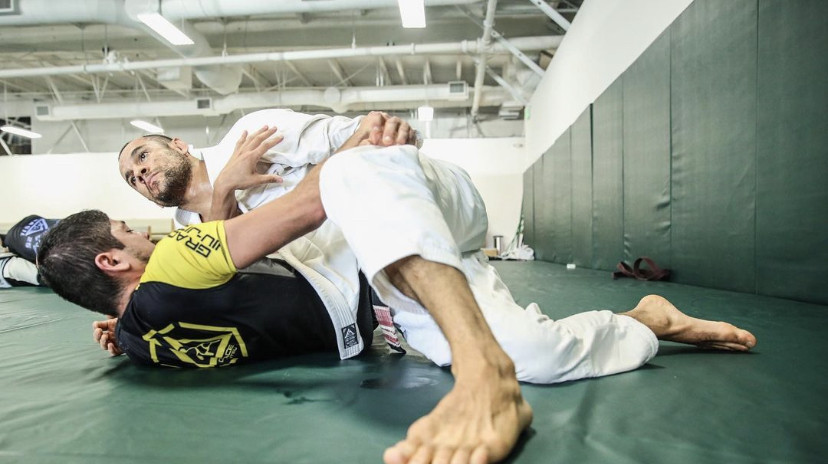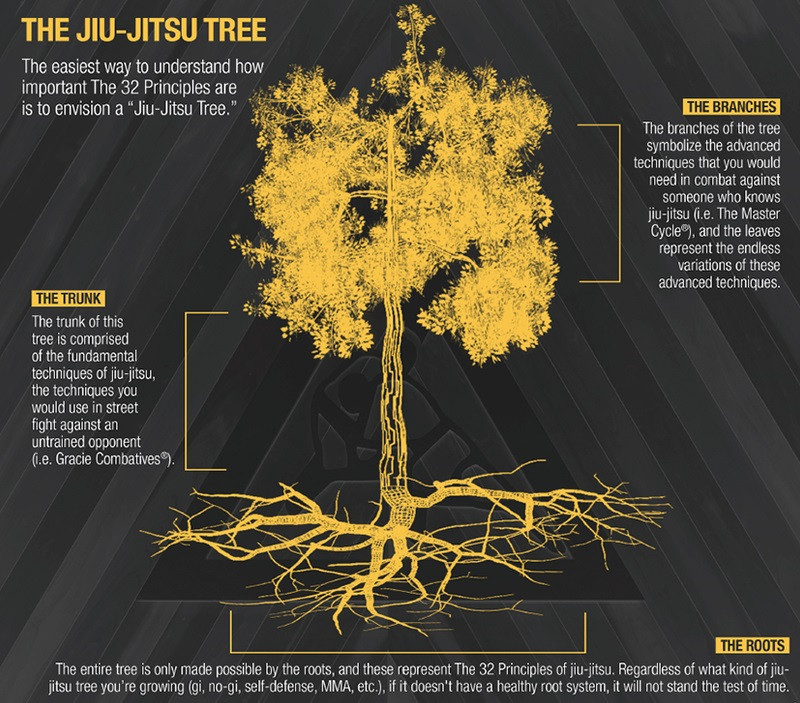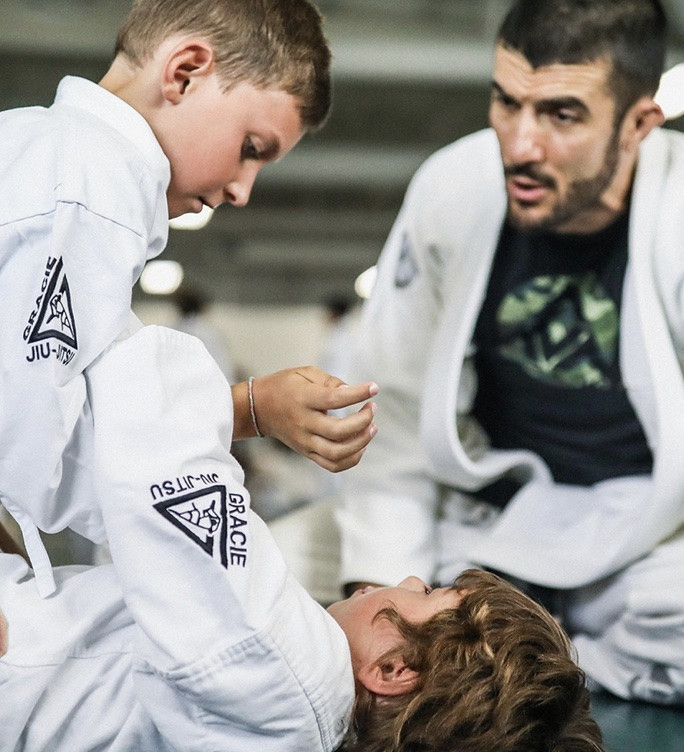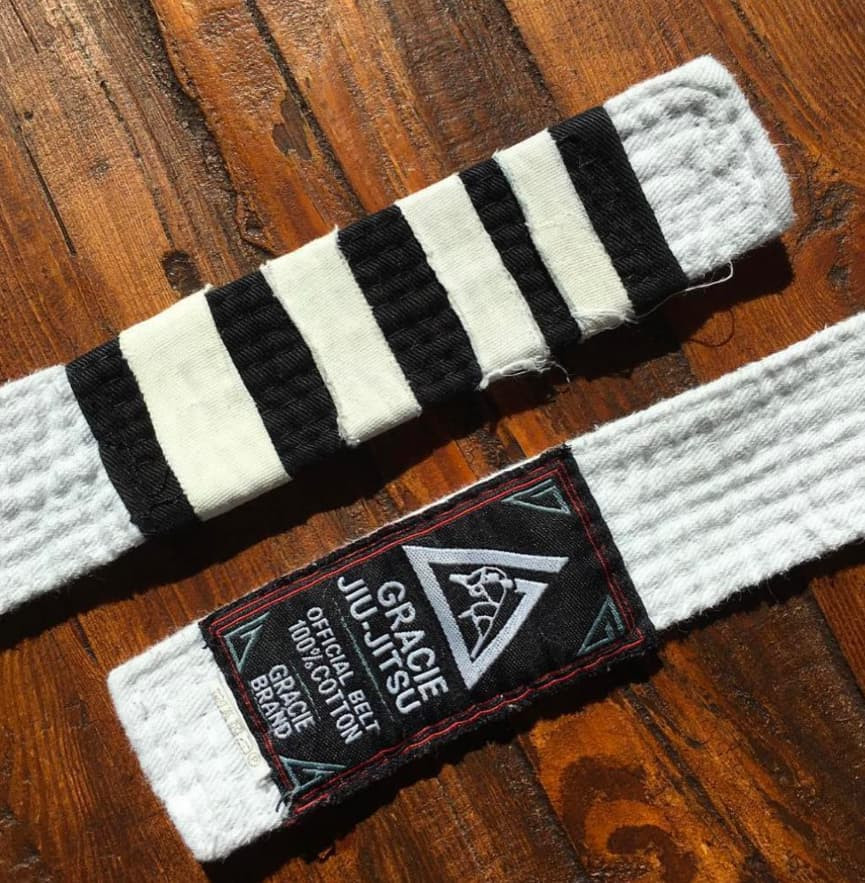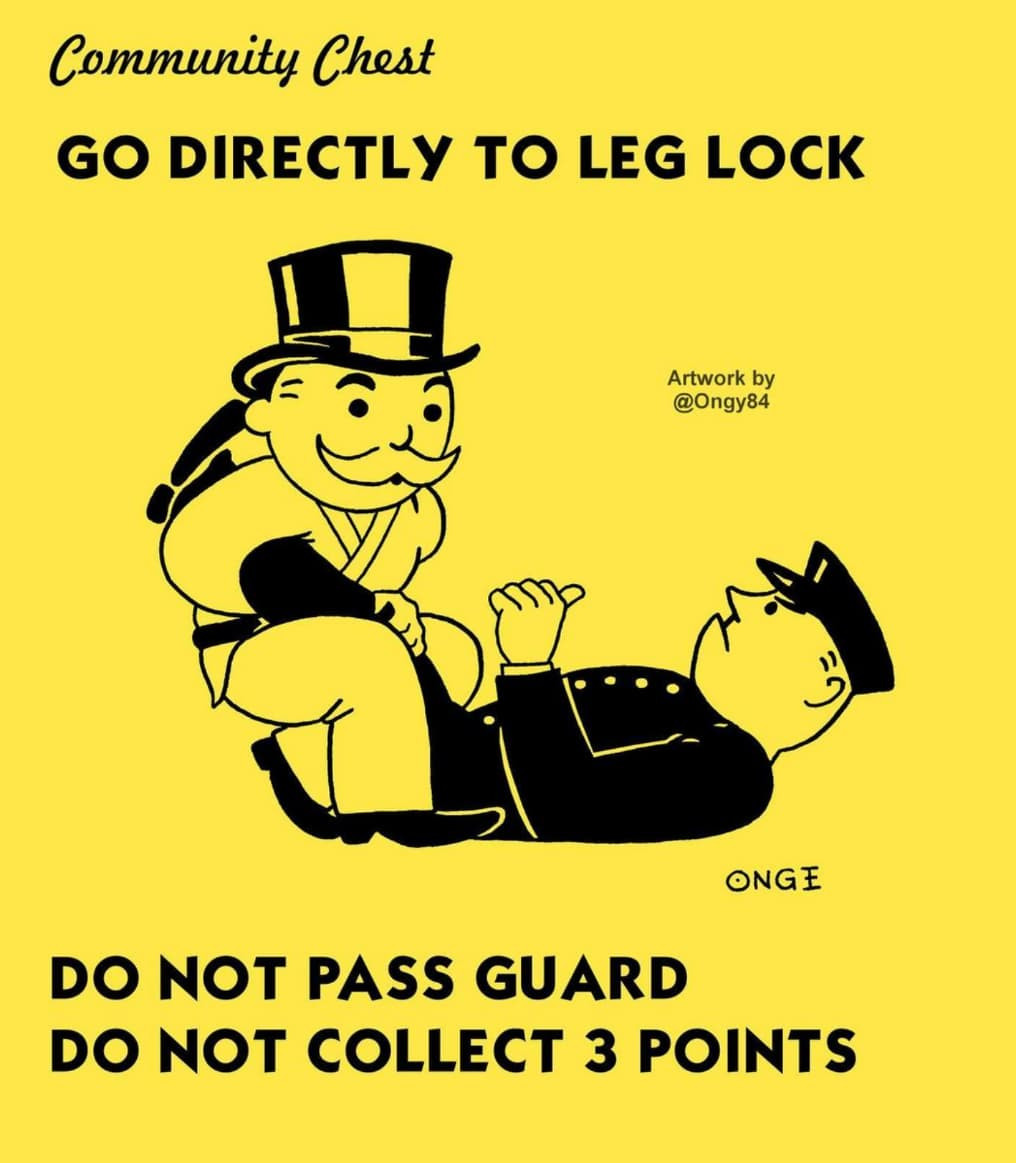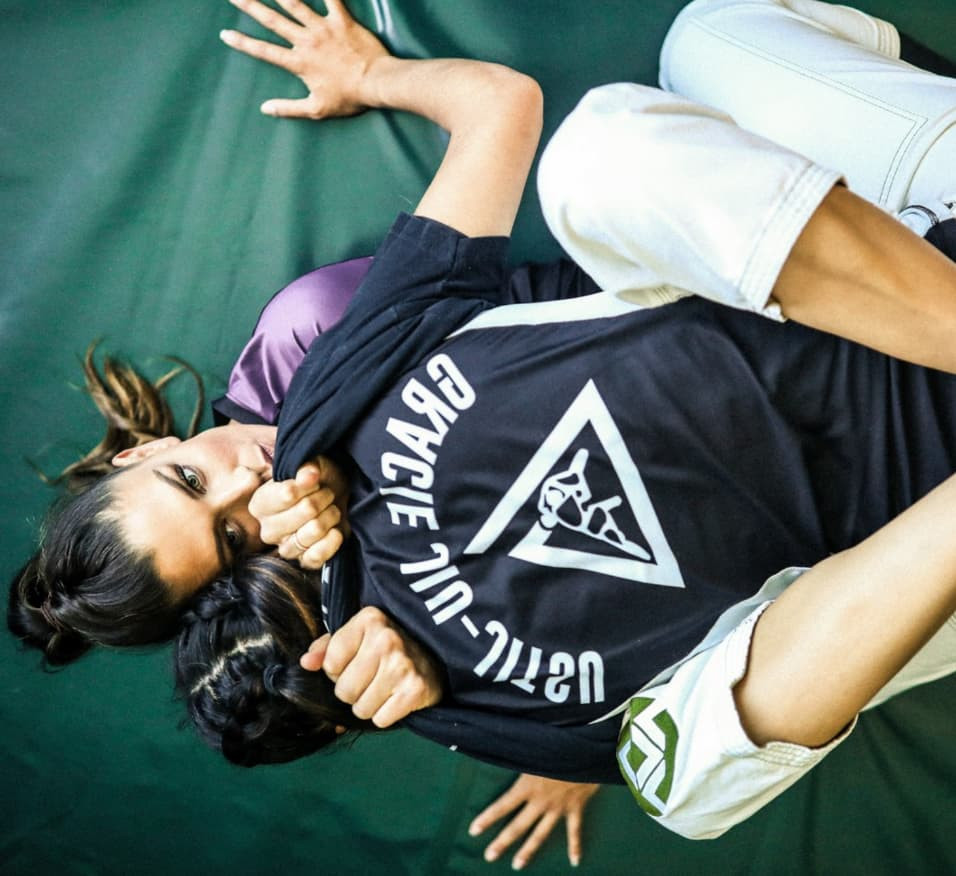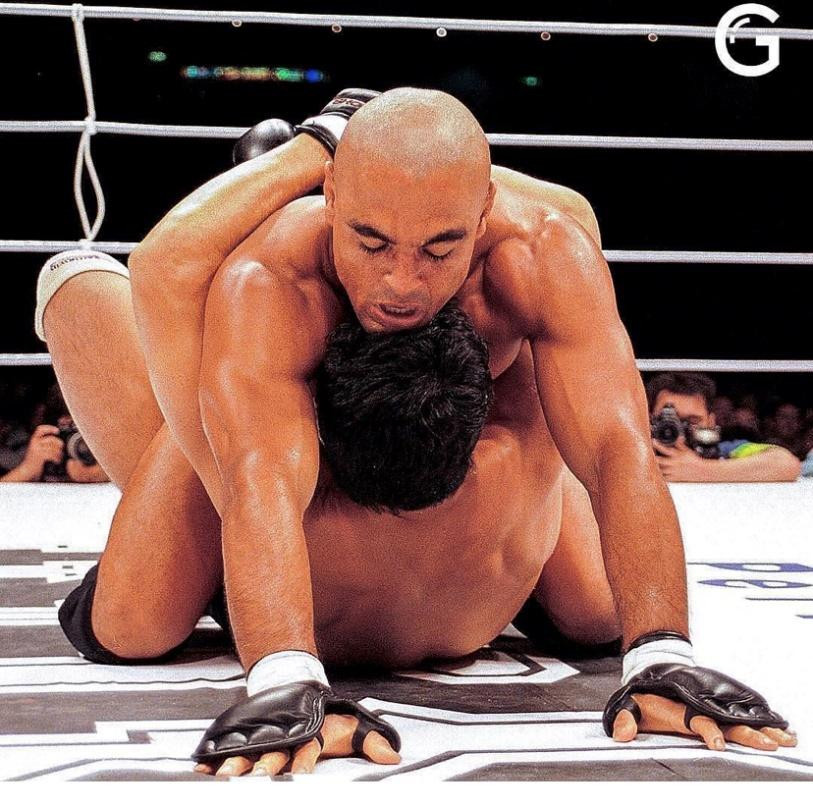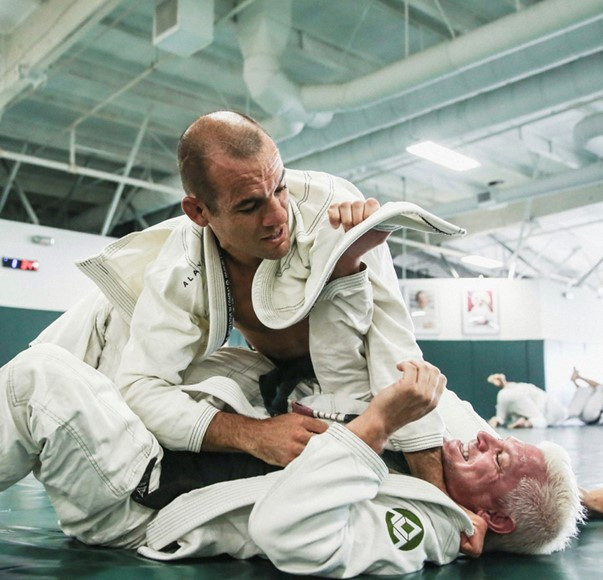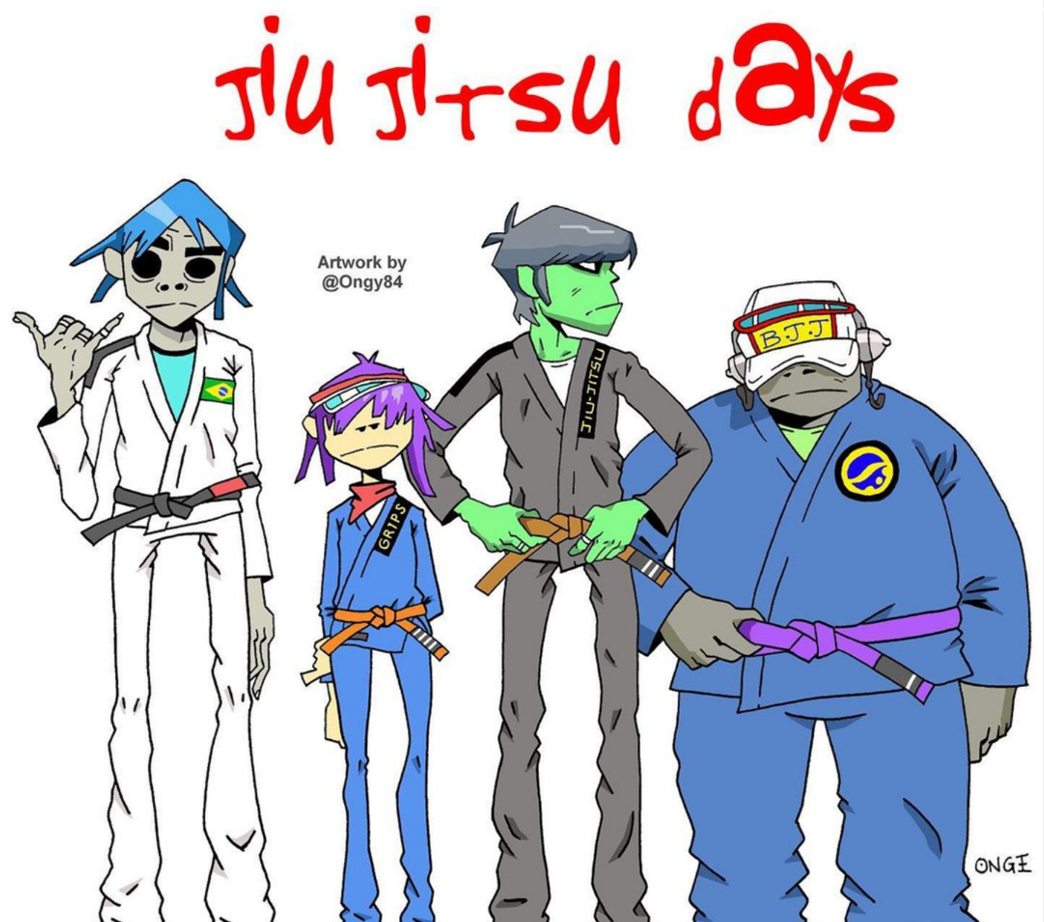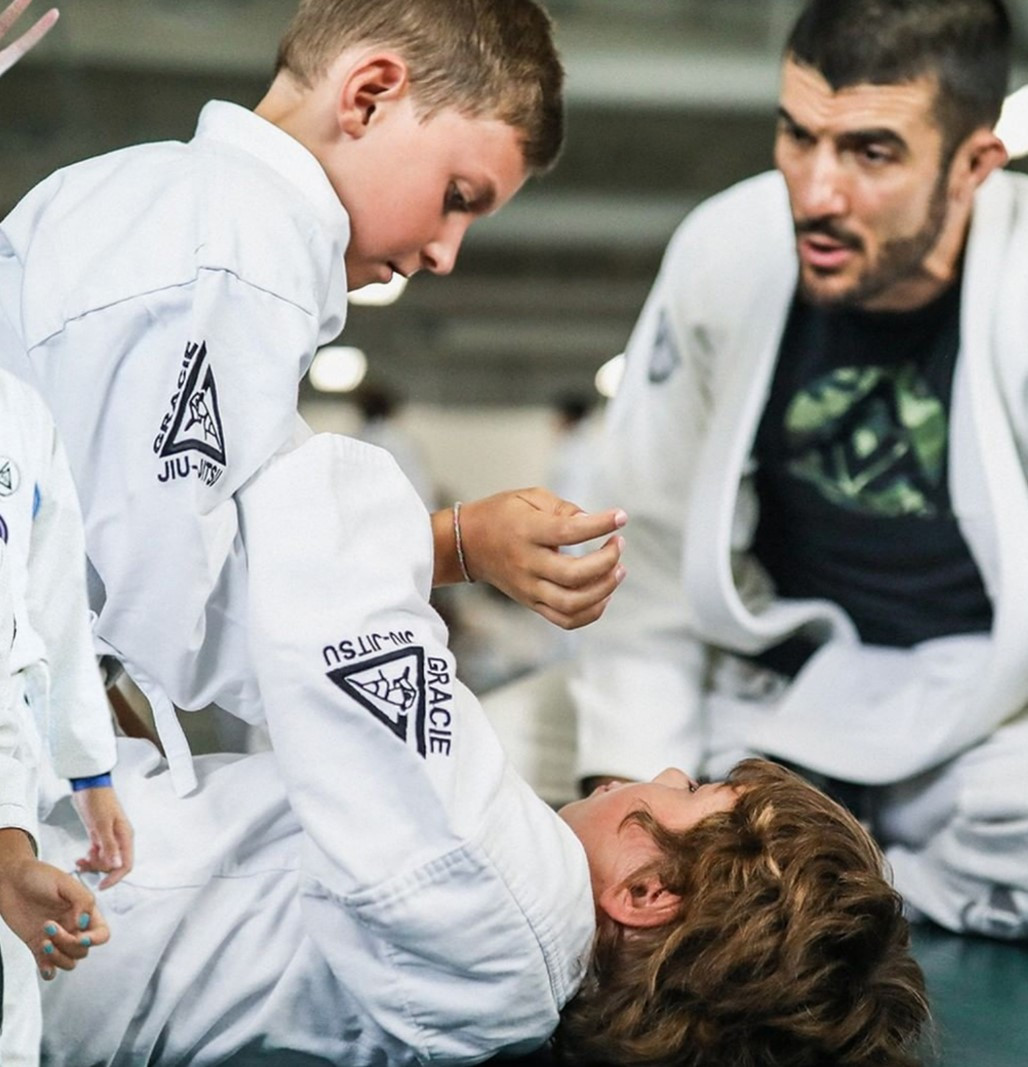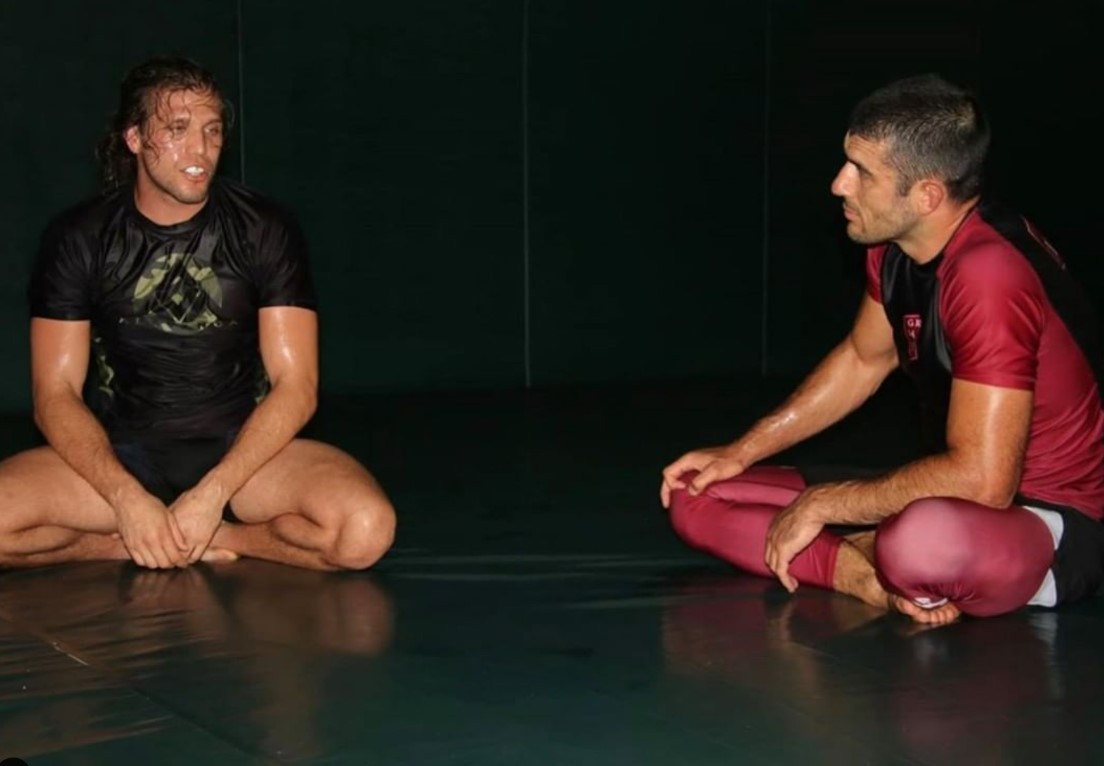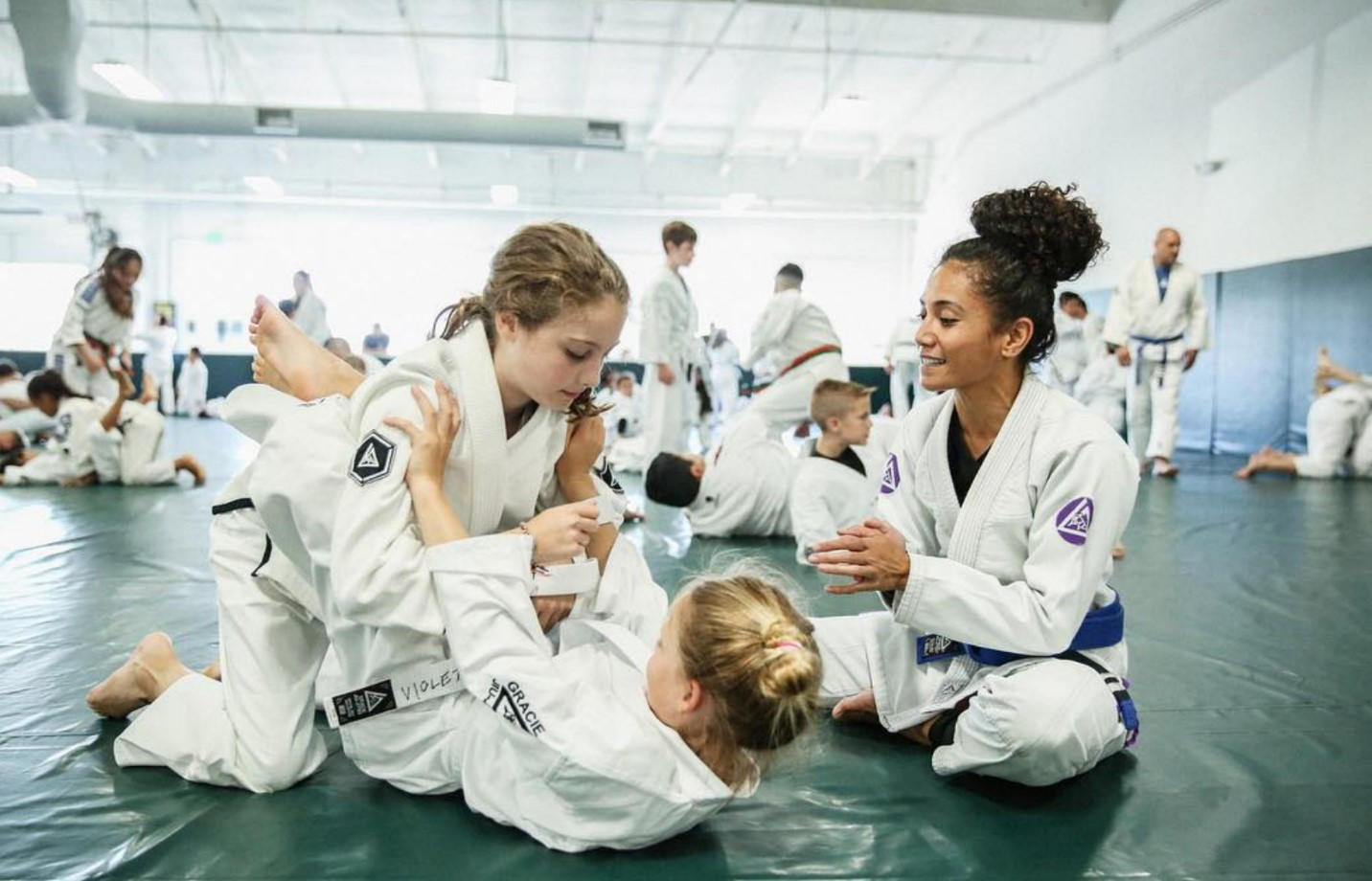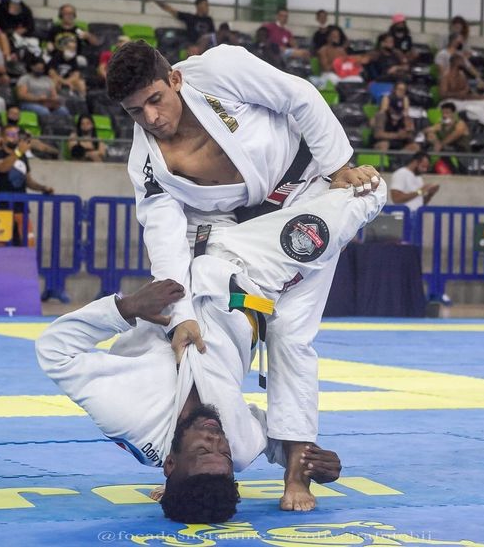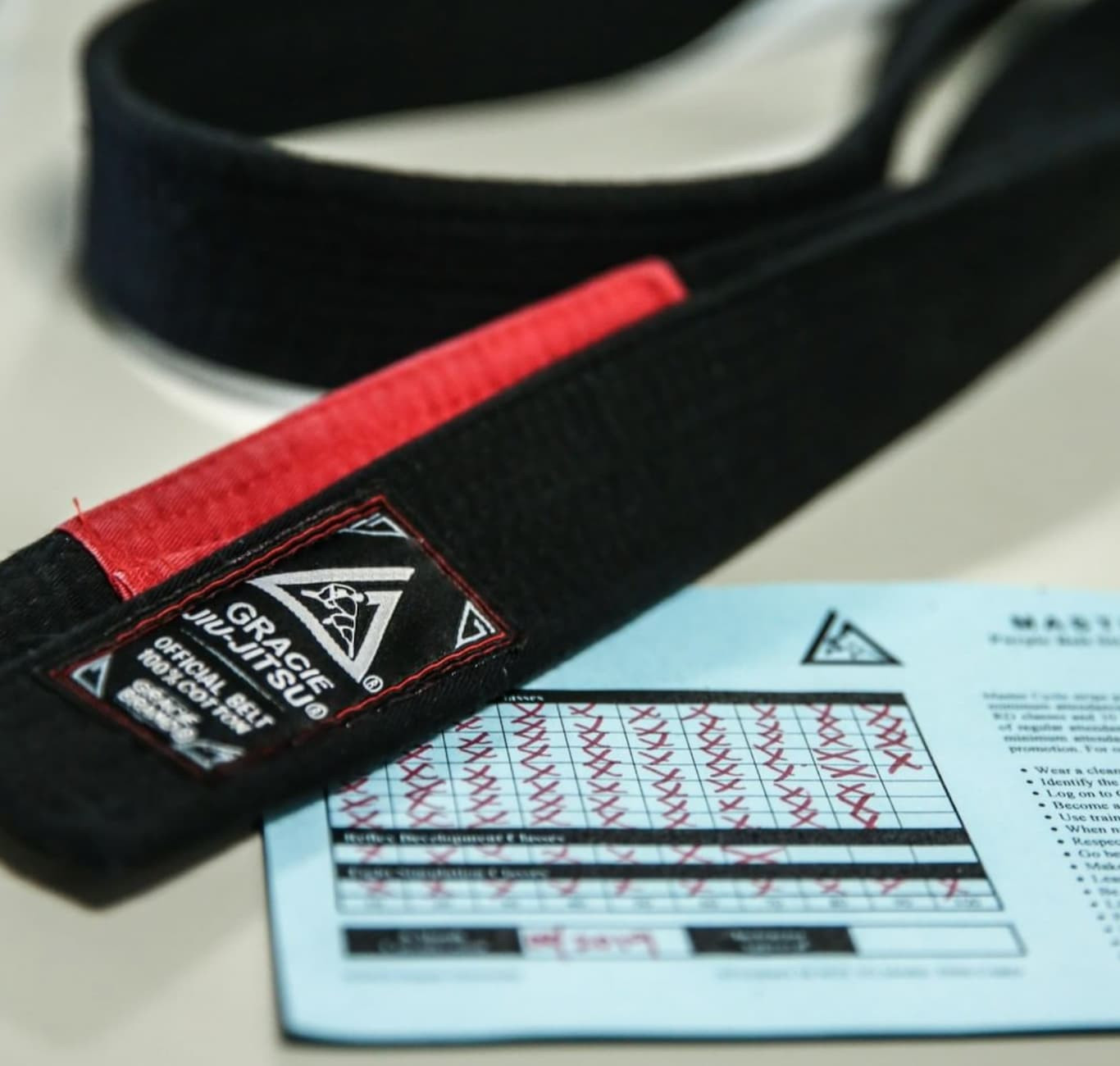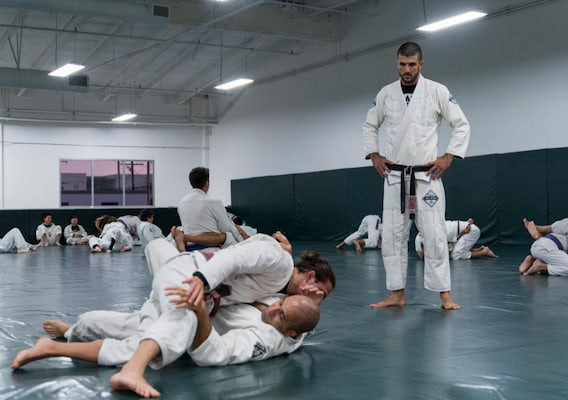Jiu Jitsu Concepts: Why Strong Fundamentals are Key to Master Advanced Techniques
All jiu-jitsu students begin as white belts and focus on learning the basic moves of jiu-jitsu. These are the fundamental moves that you must master if you hope to develop your jiu-jitsu. Of course, not every move is a fundamental move.
The Language & System of Jiu Jitsu
It’s often said that you truly speak a language when you begin to dream in it—when you are literally doing it in your sleep. This is usually the final phase in what can be a very long process of learning a language that can be broken down into three parts. During the first phase, you are simply parroting a few words or phrases. For example, you know that when someone says to you, “Good morning” or “Buenos Dias,” you’re supposed to respond in kind. In the second phase, you still think in your first language, but can then translate it into the new language. You can participate in a conversation, but you often find yourself at a loss for certain words or struggling to keep up with a native speaker. In the third phase, you no longer need to translate; you are ample to think (and dream) in the new language and can converse with anyone else who speaks the language.
Jiu Jitsu teaches kids success through small failures
Jiu Jitsu is a martial art that has gained popularity in recent years due to its effectiveness in real-life self-defense situations. However, it also offers numerous benefits for children that go beyond physical fitness and self-defense. One of the most important lessons that Jiu Jitsu teaches kids is the value of small failures and how to learn from them.
Jiu Jitsu White Belts - Where to Begin?
Anyone who has started to learn something that takes a lot of time and effort to master will quickly come to realize a fundamental truth: It sucks to suck. Particularly for people who are a little bit older and who have always been fairly good athletes, feeling like an absolute beginner at jiu-jitsu can be demoralizing. It takes you out of your comfort zone, it lays waste to your ego, and you will find yourself getting physically dominated by another person.
Training Leg Attacks in Jiu Jitsu
Learning jiu-jitsu is not a quick process. It takes months of practice, repetition, and dedication just to get a firm grasp on the basics and to self-defense. It can take a lifetime to even come close to what might be called mastery.
The Guard – Why Jiu Jitsu is the best self-defense system for Women
As a woman, it is natural to want to feel safe and protected in any situation. While there are many martial arts systems out there that claim to be effective for self defense, none come close to the effectiveness of jiu jitsu.
Jiu Jitsu Philosophy: “Losing is not the same as being defeated.”
Rickson Gracie is one of the most accomplished jiu-jitsu fighters in the world and, along with half-brother Royce, helped bring jiu-jitsu to prominence in the late 1980s and 1990s. Before moving to the U.S., Rickson made a name for himself in Brazil as a vale tudo fighter after becoming a black belt at the age of 18.
Starting Jiu Jitsu after 40? Or 50? It’s possible if you find the right Jiu Jitsu School
Whether you’re returning to jiu-jitsu after years of being away or coming to your very first class, it can be intimidating to take those first steps into the gym. There are additional challenges for those who are over the age of 50 or even 40. Most of the people who are your age may be in a similar place as you professionally or with respect to family life, but most of them will be far more skilled than you. Meanwhile, most of the students who are at the same experience level as you will likely be significantly younger than you and want to train at a higher intensity.
Jiu Jitsu Body Type - Am I too Small for Jiu Jitsu? Am I too BIG for Jiu Jitsu?
Jiu-jitsu attracts a lot of different kinds of people. This includes people of different backgrounds, as well as people of different shapes and sizes. This may come as a surprise to someone who has never come a jiu-jitsu class. Moreover, they may feel as though their body type is not ideal for martial arts, and that they will instantly be at a disadvantage when trying to train jiu-jitsu.
Is Jiu Jitsu good for kids? How do I find the right school?
For parents who are considering sending their children to jiu-jitsu class, they almost certainly have a lot of concerns. First and foremost, they want their kids to be safe. Secondly, they may want to know if there are different tracks. For example, is there a track for kids who want to compete in jiu-jitsu tournaments versus a track for kids who are just learning the basics of self-defense. Third, they may to know if it will improve their behavior. Finally, they may want to know what questions to ask their local jiu-jitsu gym before they enroll their child.
Why people quit Jiu Jitsu?
Jiu-jitsu is a great way to learn self-defense, get exercise, and even build lifelong friendships, but not everyone sticks with it. While there are loads of specific reasons why a person may decide to walk away from jiu-jitsu after just a few classes, Ryron Gracie has found that he hears three reasons why seasoned jiu-jitsu fighters hang up their gis
Repetition: Jiu-Jitsu as a Practice
It requires years of discipline and hard work to get a black belt in jiu-jitsu. Even to graduate from white belt to blue belt is a demanding endeavor that can take years because jiu-jitsu doesn’t involve a single type of learning. It involves learning the basic mechanics of moves and techniques that form the basis of jiu-jitsu, and then applying those moves in a fight scenario.
Sport JJ for Defense
You ask students on their first day why they decided to take up jiu-jitsu, most say that they came because they wanted to get in shape or learn self-defense. Very few students initially come through the doors of the school with the aim of one day competing in jiu-jitsu tournaments, but eventually a significant number begin to warm to the idea.
What To Look for In a Jiu Jitsu School
There are dozens of reasons for wanting to take up jiu-jitsu. Some people may want to treat it like a sport and compete in tournaments. Others may be mixed-martial arts fighters looking to become better at grappling and learning how to execute or escape submission holds. Still others may want to learn how to practice self-defense in a street fight scenario.
Gym vs Academy
Once you’ve decided to train jiu-jitsu, the next step is deciding where you’ll actually train. If you are brand new to jiu-jitsu, you may not understand how the words like “gym” or “academy” are used in the context of jiu-jitsu. You may even think they are interchangeable.

